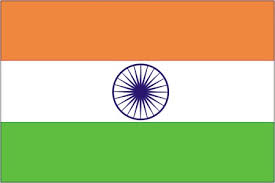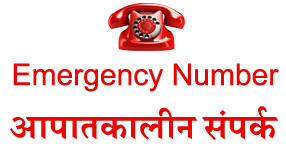UN Peacekeeping
With the upsurge in conflicts in the post cold-war period, there has been a significant expansion of U.N.’s peacekeeping activities and peacekeeping has emerged as one of the most important aspects of U.N.’s activities. Inter-State conflicts in Africa, intra-State conflicts elsewhere (former Yugoslavia, Indonesia) and cases of so-called ‘failed States’ (Somalia) have led to calls for intervention by the international community and thus a role for the United Nations. At present, the UN has a total of 17 UN peacekeeping operations with around 88,000 troops, military observers and civilian police officers, contributed by 117 member states.
Recent trends in Peacekeeping
Since the nineties, the traditional peacekeeping by the UN has been transformed and expanded, both because of the changing nature of conflicts and calls for a more active and interventionist engagement by the U.N. Peacekeeping missions are increasingly complex and multidimensional in mandate varying from peace monitoring, peace enforcement, peace building, nation building etc. They involve a multiplicity of actors such as civilian police, humanitarian agencies, NGOs, civilians. In the current context, there are varying forms of PKOs: classical UNPKOs; UN-authorized multinational operations outside UN’s command and control (as in Afghanistan) and even non-UN operations, with a growing reliance on regional and sub-regional organizations. For these reasons, peacekeeping operations are sometimes being referred to as ‘peace operations’ or ‘peace support operations’.
India’s policy on UN peacekeeping
India views peacekeeping in the traditional sense of the term as comprising an effort to assist in stabilising a conflict situation and facilitating a return to peace and security, with the consent of the States/Parties concerned, preferably within a finite, well defined timeframe and clear and achievable mandate. There should be
a clear distinction between operations under Chapter VI and enforcement actions under Chapter VII. We believe that operations under Chapter VI, based on consent of the parties, are more likely to succeed. Chapter VII operations should be seen as exceptions. As far as possible, there should be a clear distinction between a peacekeeping operation and post-conflict peace building. Our policy parameters in this regard may be summarized as follows:
- All means for the peaceful settlement of disputes chosen by the conflicting parties should be exhausted before establishing a peacekeeping operation.
- Peacekeeping operations should strictly adhere to the principles of the UN Charter, in particular the principles of full respect for the sovereignty of States, their territorial integrity and non-intervention in their internal affairs.
- Peacekeeping operations should be considered at the request of the Member States involved and should be under the command and control of UN.
- The resources for peacekeeping activities should not be at the expense of resources for developmental activities of the UN.
- It is important to ensure that the distinction between peacekeeping operations and other activities of the UN, including humanitarian assistance, is maintained.
While these core principles define India’s policy parameters, we are alive to the changes in the concepts and the realities. India’s participation in PKOs has to be based in the ultimate analysis, on an assessment of national interests in a given situation, while keeping in view the principles.
India’s Participation in U.N. Peacekeeping
India is amongst the longest serving and the largest troop contributors to UN’s peacekeeping activities. Our support for peacekeeping activities flows from India’s commitment to the UN Charter. More than 100,000 Indian troops, Military Observers and Civilian Police Officers have participated in 43 out of the 63 peacekeeping operations and observer missions established since the inception of the UN. 126 Indian nationals have made the supreme sacrifice while serving in UN peacekeeping operations, and have been awarded the Dag Hammarskjold Medals. As part of its policy of active participation in UN peacekeeping activities, India has offered one brigade of troops to the UN Standby Arrangement System (UNSAS). India has also provided the first full Female Formed Police Unit for peacekeeping work. This unit is completing its first year in assisting the UN Mission in Liberia and has been successful in reaching out to the most vulnerable sections of society, i.e. women and children, in a post-conflict environment, besides performing its other duties. The second unit is ready to take its place.
India currently contributes to 11 of the 17 ongoing UN peacekeeping missions with the deployment of 8896 personnel as of end June 2008.
Centre for UN Peacekeeping (CUNPK)
The Government of India established a Centre for UN Peacekeeping (CUNPK) in September 2000, under the aegis of the United Service Institution of India (USI), with the aim of imparting integrated training in United Nations Peacekeeping Operations (UNPKO) to Military Contingents, Military Observers and Staff Officers selected for deployment in various UN Missions and also provide similar training facilities to personnel from friendly foreign countries. It is a joint effort of the Ministry of External Affairs, Ministry of Defence and Indian Army. The CUPNK has been able to establish its credentials as a Centre of Excellence for all UN peacekeeping related training and intellectual pursuits. During the last seven years, it has conducted a series of international and national courses, peacekeeping exercises and international and bilateral seminars drawing besides numerous Indian officers’ approximately 350 foreign officers from 61 countries and 661 Indian officers. The Centre is registered as a member of the International Association of Peacekeeping Training Centres (IAPTC) and is one of the partners in the Standard Generic Training Module (SGTM) Project and Standardized Training Modules for specialists: a training initiative by the Training and Evaluation Service (TES) at the UN DPKO. The institution promotes and facilitates intellectual exchange by organising international / national / bilateral seminars and discussions and has emerged as a repository of Indian experience in the field
of peacekeeping operations.
The CUNPK hosted the UN DPKO’s Senior Mission Leader Course (SMLC) from 7-18 January, 2008. The Course was jointly conducted by the UN DPKO in cooperation with GoI. More than 50 participants including senior military, police and diplomatic officials from a number of countries, representatives of the United Nations and leading think tanks in the area of peacekeeping took part in this prestigious course which was held for the first time in Asia. The objective of the course was to enhance the leadership
qualities of senior personnel involved in UN peacekeeping, so as to prepare them to handle difficult and complex situations in peace operations more efficiently and effectively.
Bilateral Dialogue on Peacekeeping
India has an ongoing dialogue with the U.S. and U.K. on peacekeeping issues. From the Indian side, JS (UNP) leads the Joint Working Group (JWGs) on peacekeeping 4
with these two countries. These meetings provide not only a forum for exchanging views on policy and operational aspects of peacekeeping, but also for planning joint activities and identifying institutional cooperation in peacekeeping. Since 2001, four meetings of India-U.K. JWG on Peacekeeping have been held. The last meeting was held from 23-25 November, 2004 in New Delhi. Seven meetings of the India-U.S. JWG on Peacekeeping have taken place so far. The eighth meeting of the India-US JWG was held in Washington DC from the 12-13 May 2008.















